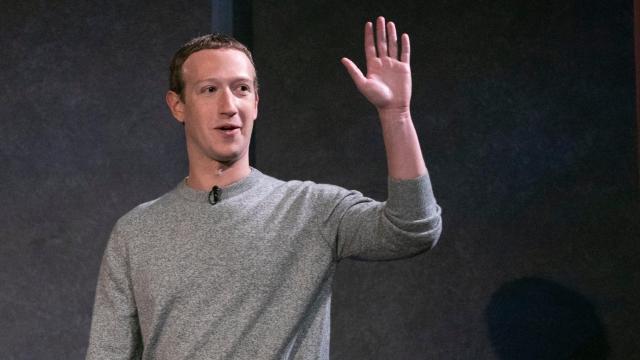Facebook served dangerous “abortion reversal” ads viewed 18.4 million times since January 2020, according to a new report by the Centre for Countering Digital Hate. Abortion reversal, deemed unethical and unscientific, is so concerning that accredited researchers were unable to subject patients to a study.
Most of the ads come from Live Action, a self-described investigative journalism outlet aiming to “expose the threats against the vulnerable and defenseless.” In numerous videos, the organisation portrays abortion “reversal” after taking one dose of abortion medication as a proven, safe option.
The gist: a teen or woman in her early twenties with a bright future — attending college, maybe — gets a positive pregnancy test. Possibly under pressure from an abusive boyfriend, she’s thrust into a Planned Parenthood office where a pushy, unfeeling nurse or doctor rushes her through the medication abortion process. She takes the pills, she breaks down in the car, and she Googles. She finds the abortion reversal hotline, which tells her that a procedure can reverse the effects of the first abortion pill. The video cuts to a healthy child.
The Centre for Countering Digital Hate found that, between January 1, 2020, and September 8, 2021, Facebook has permitted 92 such ads from Live Action News, Live Action, and Heartbeat International, an anti-abortion chain of counseling centres. Facebook’s ad library shows that it took between $US115,400 ($157,406) and $US140,667 ($191,870) for “abortion reversal” ads since January 2020.
The procedure they’re proposing, using the hormone progesterone after the first dose of an abortion drug, isn’t FDA-approved, and we have no credible evidence proving its safety at all. In 2019, researchers from the University of California’s Obstetrics and Gynecology Department had to halt the first credible study of the method when two out of twelve early participants suffered potentially life-threatening bleeding. (Medication abortion, which the FDA approved in 2000, and has been shown to pose serious health risks in only .4% of cases.)
Nonetheless, “abortion reversal” has made its way into legislation. Eight states now mandate that abortion-seekers must be given misinformation about an abortion “reversal” option. Live Action ads also tend to target people in Texas, which has passed an abortion bill allowing citizen bounty hunters to file $US10,000 ($13,640) lawsuits against not only people seeking abortions but even a rideshare driver who takes them to a clinic. Live Action founder Lila Rose has called that law “a historic step forward for basic human rights.”
In total, Facebook’s ad library shows that Live Action News and Live Action have spent over $US1.7 ($2) million on ads from May 2018 and September 2021. The ads include a mix of “abortion reversal” promotion along with directives to call legislators and misleading information about the safety of medication abortions.
In 22 ads garnering over 500,000 impressions, Live Action claimed that 24 people have been killed by the abortion medication mifepristone since 2000. But the FDA has added the disclaimer that these shouldn’t necessarily be attributed to mifepristone since improperly administering the drug to people with health complications could play a role. In an argument supporting abortion “reversal,” the organisation also misleadingly linked to an unrelated study of progesterone used for pregnant people, not those who’ve already taken an abortion pill.
The Centre for Countering Digital Hate found that Google, too, ran abortion reversal ads on 83% of searches for terms like “find abortion clinic near me”; the ads are evidently gone, removed after the Daily Beast contacted Google. (In an email to Gizmodo, Google confirmed that it found the ads in violation of its policies and removed them.) But a search this morning showed that three out of the top ten results for “abortion reversal” show these sites.
Google told us that it allows abortion-related ads, so long as the advertiser passes its certification process — a “process” that involves checking off a box stating whether they do or do not provide abortions. (Google marks abortion-related ads with the disclosures “Provides abortions” or “Does not provide abortions.”) It seems weird that they’d even let the word “abortion” run in ads at all, especially after they awarded $US150,000 ($204,600) in ad grants to an anti-abortion counseling group posting as a network of medical clinics.
Both companies’ policies forbid showing the ads, to an extent. Google flat-out forbids advertisers from promoting “misleading information about products” and “non-government approved products that are marketed in a way that implies that they’re safe or effective.” Always more permissive Facebook, which has allowed Live Action and others to target children aged 13 to 17, states that ads “targeted to minors must not promote products, services or content that are inappropriate, illegal, or unsafe, or that exploit, mislead, or exert undue pressure on the age groups targeted.”
That description of banned content fits the story of “Andrea,” a college junior, targeted teens and people under age 44 and has been viewed up to 300,000 times. Another teen-targeted ad featured a “prolife OBGYN” claiming to have “successfully reversed the effect of the abortion pill,” and was viewed over 110,000 times.
Facebook fails to keep misinformation off its platform, even by known propagators. Last year, activist misinformation tracker Avaaz mapped out a network of easily identifiable covid-19 misinformation “superspreaders.” Most of the pages remain on Facebook pushing vaccine hoaxes, conspiracies, and bunk cure-alls, sometimes with click-through interstitials.
Gizmodo has reached out to Facebook, and we will update the post if we hear back.
